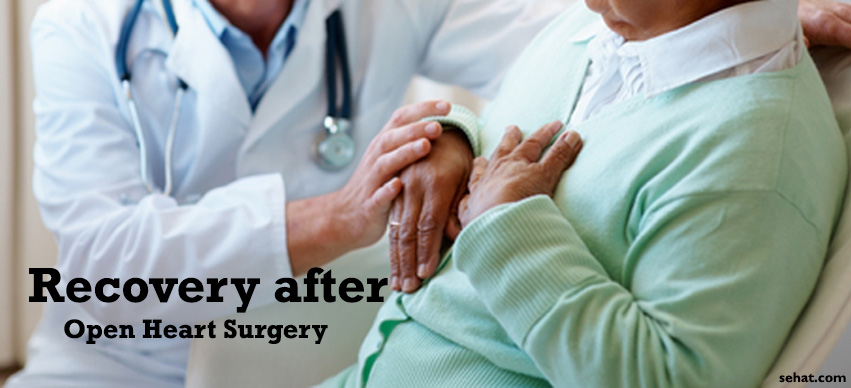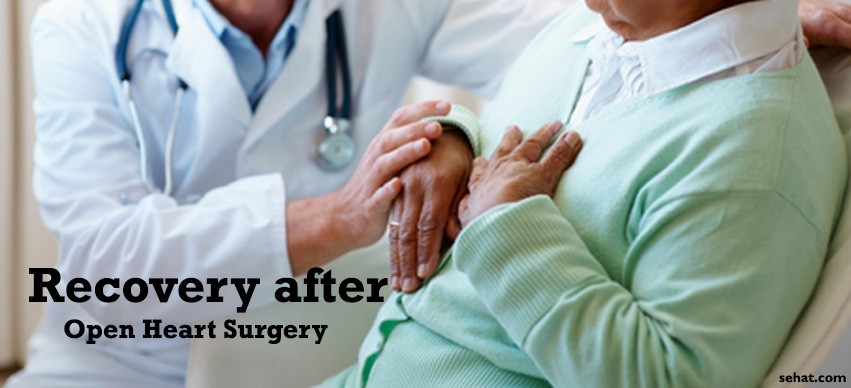Microplastics in Humans: Understanding the Risks and How to ..
8 Min Read


We all know that the heart is one of the most important organs in the body, and it is the heart's functioning that supplies blood to all the parts of the body. But, it has to depend on a number of blood vessels called coronary arteries for its blood supply. And, if these arteries become blocked the condition is called as coronary artery disease. When oxygen does not reach the heart, the heart is damaged and the only option, then, is bypass surgery or open-heart surgery. Bypass surgery is one of the most commonly performed surgeries in the world.
Heart surgery is also performed in a number of cases, but commonly:
After surgery, the patient is shifted to the Intensive Care Unit or ICU. Surgeons allow patients to wake up slowly as they would not like to stress their patients by waking them up abruptly. In the ICU, critical care environment is provided to the patients to ensure that they are constantly monitored. There is a cardiovascular team who will closely monitor your condition, progress, and recovery. You will be kept in the ICU for a day and then shifted to the cardiothoracic unit for recovery where you will be kept for 4-5 days before being sent home. A heart surgery is quite a major surgery and you will take considerable time to recover and be on your feet. After being sent home, your recovery takes about 6 to 8 weeks. Before going home, your doctor will give detailed instructions how to take care of yourself at home.
Your doctor will give you detailed instructions about taking care of your incision.
1. Take care of all the incisions in your body. Not only would you have an incision on your chest but you may also have one on your leg or groin. You may also have small incisions from chest tubes, wires, or intravenous lines.
2. Examine your incisions every day for any signs of infection.
Inform your doctor if you find:
3. Ensure that your incision is clean and dry
4. Wash your hands each time before you touch your incision
5. You can take a quick shower if your incision is healing and there is no drainage - but no soaking in the tub.
6. Use an ordinary soap - not a perfumed one or body wash - to wash the incision.
7. Do not apply any ointments, oils, or dressing on your incision.
8. Do not rub, but pat dry your incision.
After being discharged from the hospital you may feel mild to moderate pain. By the time you come for your follow up you should have almost negligible pain. Through effective pain management you will heal quicker and will not have any complications after the surgery.
During recovery you may feel pain and burning sensation in your chest area and at the incision spot. You may also feel pain when the chest tubes are removed and you start walking.
Surgery can definitely affect your mental health after leaving the hospital. It can play quite a bit with your emotions and result in your feeling anxious, sad, and depressed. It may also leave you tired and irritable. But, these feelings are temporary and you will feel your normal self when you get back to your routine activities.
However, if you continue to feel the same way even after two weeks of your surgery consult your doctor.
It may take a few weeks after your surgery to recover your mental faculties completely.
Eating a healthy diet is as essential as exercise for that will speed up the process of recovery and healing. If you have not yet developed your appetite completely, eat smaller but more number of portions. Patients with diabetes must follow a low-fat and low-sugar diet.
Eat a variety of healthy foods that are low in fat and cholesterol. Eat foods that are low in salt and sodium and go easy on sugar and sweets. Do eat foods that are rich in carbohydrates and fiber.
Many people complain of having trouble sleeping after heart surgery. You may not be able to sleep because of:
Whatever be the reason for not being able to sleep, you should be able to get back to your normal sleeping routine within 2-3 weeks after your surgery. Take rest breaks during the day, but avoid sleeping during the day. And, avoid caffeine at night.
You can resume your routine activities gradually, but it will definitely take some time for you to revert to your normal life and activities. But, one thing that you should follow very strictly is follow your doctor's instructions.